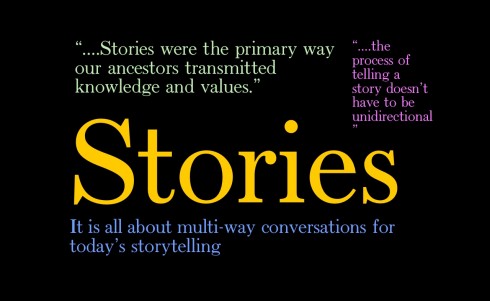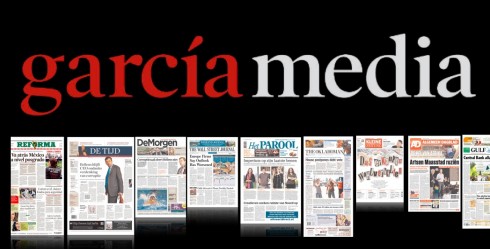TAKEAWAY: I have come across two pieces in the past 24 hours that, again, reinforce for us the importance of “the story”.
Stories and storytelling

President Obama is no doubt getting a lot of advice these turbulent days; now, he also gets some advice of a different kind: it is all about the story, and let’s not forget that.
This is what Drew Westen, a professor of psychology at Emory University and the author of “The Political Brain: The Role of Emotion in Deciding the Fate of the Nation.”, reminds the President in a piece that appeared in The New York Times this past Sunday. In his piece, Westen reminds the President that it is all about stories, and, specifically, within the context of President Obama’s tenure, the story that the American people want to hear, and that he is apparently not telling.
The stories our leaders tell us matter, probably almost as much as the stories our parents tell us as children, because they orient us to what is, what could be, and what should be; to the worldviews they hold and to the values they hold sacred. Our brains evolved to “expect” stories with a particular structure, with protagonists and villains, a hill to be climbed or a battle to be fought. Our species existed for more than 100,000 years before the earliest signs of literacy, and another 5,000 years would pass before the majority of humans would know how to read and write.
.
I recommend you read the piece, which takes storytelling to its beginnings:
Stories were the primary way our ancestors transmitted knowledge and values. Today we seek movies, novels and “news stories” that put the events of the day in a form that our brains evolved to find compelling and memorable. Children crave bedtime stories; the holy books of the three great monotheistic religions are written in parables; and as research in cognitive science has shown, lawyers whose closing arguments tell a story win jury trials against their legal adversaries who just lay out “the facts of the case.”
The case for storytelling: part 2
Another story I recommend, comes from the UK’s The Guardian, and it is titled:
Storytelling: digital technology allows us to tell tales in innovative new ways.
The piece’s summary says it all: As the tools available to publishers grow more sophisticated, it’s up to us to experiment and see what sticks
The author of the piece, Aleks Krotoski, reminds us that we need to see storytelling beyond the linear, as we so often do.
“…..linear stories still dominate the page, our TVs, our radios, our games consoles and the theatre. Yet the process of telling a story doesn’t have to be unidirectional.”
It does not have to be, and we in this blog are constantly urging people in our industry to not just make storytelling the protagonist, but also the one area of our work in which we can be more experimental.
In this piece we read about “multi-way” conversations, which the digital media can do so well, and that, in its most primitive representation, is what we see when we turn to Twitter or Facebook.
I like that term multi-way conversation because, there is no doubt in my mind, this is how we will be dealing with storytelling now and in the future.
Don’t miss these
Apps vs the Web
Conclusion:
Each project must weigh up the relative merits of native and web apps for itself, but the inescapable fact is that when deploying on the web, from the user’s perspective, you’re probably starting with a disadvantage. There’s cognitive load associated with your app being a bookmark instead of an experience, and there’s an implicit trivialisation which occurs in the user’s mind. It’s unfair, but it’s a reality…. Instead, people want an experience that’s delightful, and tailored to what they want to do. Something dedicated, and designed. Something specific, and something special – and something that works with what they already have, without effort or aggravation. They want to hit a button and be subscribed, and wake up to a new issue waiting for them while the coffee machine is bubbling away.
http://mattgemmell.com/2011/07/22/apps-vs-the-web#more-2552
An iPad Newspaper for People Who Don’t Read Newspapers
First paragraph:
When newspaper publishers finally accept the inevitability of digital alternatives for delivering news, their first impulse has typically been to create digital replicas of the printed newspaper. Whether it’s delivered on the Web or, more recently, on the iPad, the same news that graces the front page of the printed paper is laid out pretty much the same way in a digital edition, albeit with occasional video and links.
Such a transition strategy makes sense if the goal is to retain readers who are migrating en masse from one medium (print) to another (Internet, smartphone or iPad) or uses them interchangeably. But statistics show that the audience for print is different from those who get their information digitally. The Pew Research Center’s Project for Excellence in Journalism noted that adults over 55 are the most likely to read printed newspapers and Nielsen has said that only 15% of iPad users are over 55. Meanwhile, comScore MobiLens reported that in the three-month period ending February 2011, iPad sales were dominated by young adults ages 25-34 (27%) and 35-44 (20.3%). It’s not surprising, therefore, that selling a “newspaper” experience to younger readers on digital devices has been largely unsuccess- ful, particularly at expanding the audience.
https://intranet.freedom.com/freedom_admin/images/pdf/IDEAllianceBulletin%20Magazine.pdf
Today’s pop up

Bild Zeitung’s iPad app today shows us a pop up on how to identify the 10 best types of potatoes out there.
Reporting this week from Kuala Lumpur, Malaysia
This week finds me and our Garcia Media art director, Constantin Eberle, working with the team of the New Straits Times in the Malaysian capital, Kuala Lumpur. I will post TheMarioBlog daily during my usual morning schedule, but because of time differences, it will be evening for those in other parts of the world.
For a view of the Garcia Media printed projects’ retrospective

https://www.garciamedia.com/blog/articles/garcia_medias_print_projects_a_retrospective